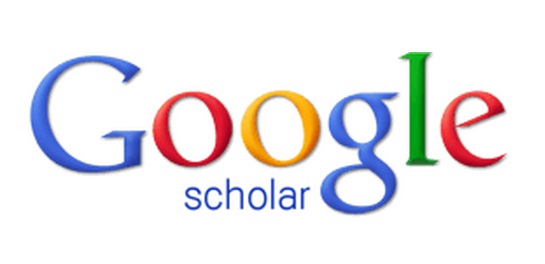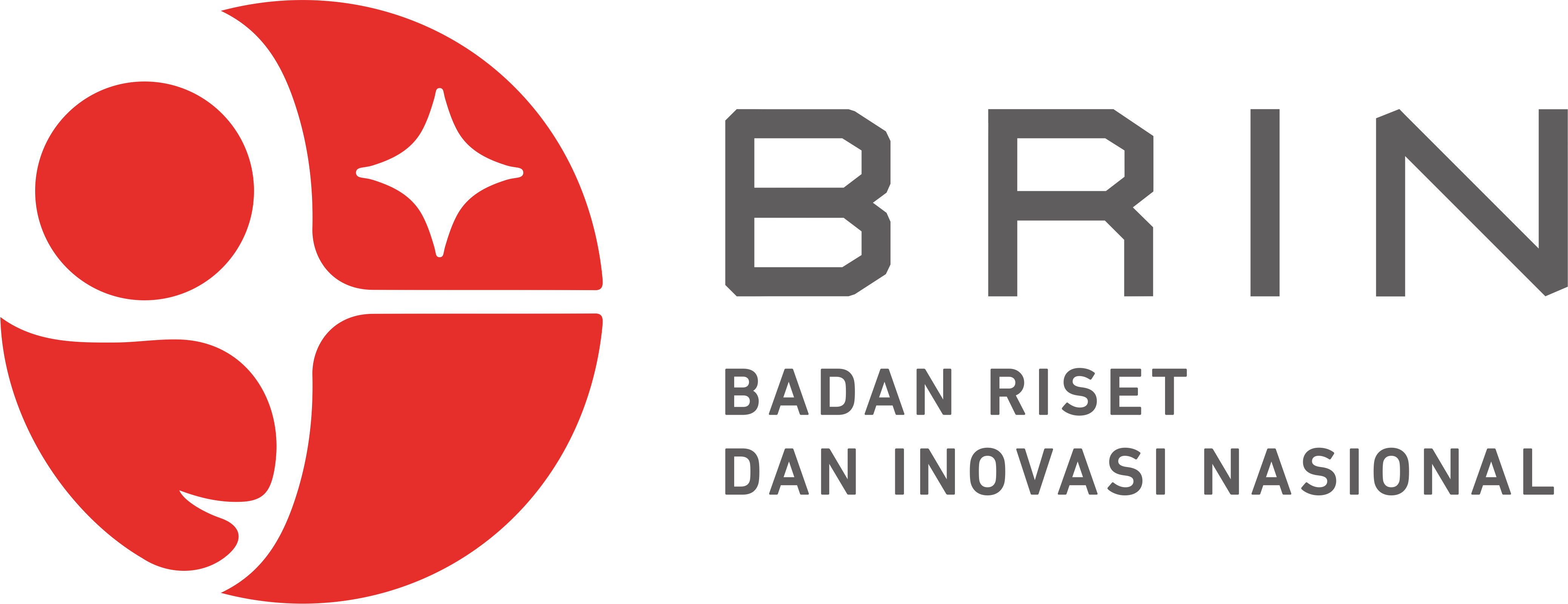PENGEMBANGAN POTENSI DIRI SISWA MELALUI INTEGRASI KURIKULUM MERDEKA BELAJAR DAN TEKNOLOGI DIGITAL SEBAGAI UPAYA MENYIAPKAN GENERASI TANGGAP SOCIETY 5.0
Keywords:
Merdeka Belajar Curriculum, digital technology, students' potential, Society 5.0, digital literacy, 21st-century competenciesAbstract
This study aims to examine the role of the integration of the Merdeka Belajar Curriculum and digital technology in developing students' self-potential as an effort to prepare a generation that is responsive to Society 5.0. Through a literature review method, this study examines various scientific references and educational policies related to the implementation of the Merdeka Curriculum, the use of digital technology in learning, and the concept of Society 5.0. The results of the study indicate that the integration of both is capable of creating a more flexible, contextual, and learner-centred learning ecosystem. The implementation of the Merdeka Curriculum, which is project-based and differentiated, supported by digital technology, promotes the strengthening of 21st-century competencies such as critical thinking, creativity, communication, collaboration, and digital literacy. However, several challenges remain, including technological access gaps, educator readiness, and the need for continuous training. Therefore, multi-stakeholder collaboration is essential to optimise the development of students' potential. This integration represents a strategic step in shaping a generation that is not only academically excellent but also adaptive, resilient, and prepared to tackle the complex challenges of the global Society 5.0 era.
Downloads
References
Akib, E. (2020). Study on Implementation of Integrated Curriculum in Indonesia. International Journal of Recent Educational Research, 1(1), 39–57. https://doi.org/10.46245/ijorer.v1i1.24
Aslan, A., & Naba, N. (2025). INTEGRASI PENDIDIKAN GIZI DALAM KURIKULUM SEKOLAH: MANFAAT DAN IMPLEMENTASI. Jurnal Kesehatan, 3(3), 111–117.
Aslan, A., & Nur, R. F. (2025). IMPLEMENTING THE PRINCIPLES OF SOCIAL JUSTICE AND EQUALITY IN EDUCATION: A LITERATURE REVIEW OF EFFORTS TO ELIMINATE DISCRIMINATION AND BUILD MUTUAL RESPECT IN SCHOOLS. International Journal of Teaching and Learning, 2(11), Article 11.
Aslan, A., Silvia, S., Nugroho, B. S., Ramli, M., & Rusiadi, R. (2020). TEACHER’S LEADERSHIP TEACHING STRATEGY SUPPORTING STUDENT LEARNING DURING THE COVID-19 DISRUPTION. Nidhomul Haq : Jurnal Manajemen Pendidikan Islam, 5(3), 321–333. https://doi.org/10.31538/ndh.v5i3.984
Calvert, J. (2023). Improving Student Learning Outcomes Using Narrative Virtual Reality as Pre-Training. Virtual Reality, 27(3), 2633–2648.
Eliyah, E., & Aslan, A. (2025). STAKE’S EVALUATION MODEL: METODE PENELITIAN. Prosiding Seminar Nasional Indonesia, 3(2), Article 2.
Fatimah, N. (2021). Adaptasi Inovasi Kurikulum Merdeka di Sekolah Dasar Swasta. Jurnal Pendidikan Dasar Indonesia, 4(2), 45–57. https://doi.org/10.21009/jpdi.v4i2.643
Fatoni, M. H., Santoso, B., Syarifuddin, H., & Hanani, H. (2024). Models and Implementation of Curriculum Development in Schools. International Journal of Educatio Elementaria and Psychologia, 1(2), 98–111. https://doi.org/10.70177/ijeep.v1i2.924
Ferrari, R. (2020). Writing narrative style literature reviews. Medical Writing, 24(4), 230–235. https://doi.org/10.1179/2047480615Z.000000000329
Fitria, N. (2024). Implementation of the Ultimum Remedium Principle in Resolving Medical Disputes. Delegalata: Jurnal Ilmu Hukum, 9(1).
Guna, B. W. K., Yuwantiningrum, S. E., Firmansyah, S, M. D. A., & Aslan. (2024). Building Morality and Ethics Through Islamic Religious Education In Schools. IJGIE (International Journal of Graduate of Islamic Education), 5(1), 14–24. https://doi.org/10.37567/ijgie.v5i1.2685
Hermanto, B. (2025). Implementasi Kurikulum Inklusif untuk Sekolah Dasar. Jurnal Pendidikan Khusus, 5(1), 15–25. https://doi.org/10.21070/jpkh.v5i1.57
Hidayah, I., & Rahmawati, Y. (2022). Project-Based Learning untuk Mendukung Kurikulum Merdeka. Biosfer: Jurnal Pendidikan Biologi, 10(2), 106–119. https://doi.org/10.21009/biosferjpb.v10i2.10936
Kristiyuana, K., Wuriningsih, F. R., Idammatussilmi, I., & Agung, A. (2025). Reforming Pedagogy in Indonesian Primary Schools: A Five-Year Systematic Review of Differentiated Instruction, Project-Based Learning, and Formative Assessment (2020–2025). Jurnal Ilmiah Profesi Pendidikan, 10(2), 1694–1705. https://doi.org/10.29303/jipp.v10i2.3413
Kusmawan, A., Rahman, R., Anis, N., & Arifudin, O. (2025). The Relationship Between Teacher Involvement in Curriculum Development and Student Learning Outcomes. International Journal of Educatio Elementaria and Psychologia, 2(1), 1–12. https://doi.org/10.70177/ijeep.v2i1.1890
Maulidina, I. F. (2024). Peran Pembelajaran Proyek dalam Kurikulum Merdeka. Jurnal Inovasi Pendidikan Abad 21, 6(2), 78–98. https://doi.org/10.54371/jipa.v6i2.506
Novita, N. D., Nur Hadi, M., & Syaifullah. (2019). Efektivitas Model Problem Based Learning dalam Meningkatkan Motivasi Belajar Peserta Didik SMA. Al-Murabbi, 4(2), 165–176. https://doi.org/10.35891/amb.v4i2.1432
Nurlia, U. (2022). Model Pengembangan Kurikulum Diferensiasi pada Pendidikan Dasar. Jurnal Didaktika Pendidikan Dasar, 8(1), 75–85. https://doi.org/10.32507/jdpd.v8i1.350
Paramita, E., Aminullah, A., Ratnasari, D., & Husna, A. (2025). Transformasi Perkembangan Kurikulum di Indonesia. Jurnal Pendidikan Dan Pembelajaran Indonesia (JPPI), 5(1), 169–184. https://doi.org/10.53299/jppi.v5i1.976
Pongpalilu, F., & Aslan, A. (2025). THE ROLE OF TEACHERS AS AGENTS OF CHANGE IN SHAPING STUDENTS’ CREATIVITY, CHARACTER, AND SOCIAL SENSITIVITY: A LITERATURE REVIEW. International Journal of Teaching and Learning, 2(11), Article 11.
Prastowo, A. (2023). Profil Pelajar Pancasila dan Inovasi Kurikulum di Indonesia. Jurnal Pendidikan Karakter, 13(1), 122–134. https://doi.org/10.21831/jpk.v13i1.60826
Pratama, A. R. (2024). Perubahan Kebijakan Kurikulum Nasional 2021–2023. Jurnal Kebijakan Dan Administrasi Pendidikan, 15(2), 147–157. https://doi.org/10.34125/jkap.v15i2.3249
Putra, D. F. (2022). Pengaruh Inovasi Kurikulum pada Kemampuan Berpikir Kritis Siswa. Jurnal Psikologi Pendidikan Dan Konseling, 5(3), 389–400. https://doi.org/10.35657/jppk.v5i3.456
Putra, P. & Aslan. (2020). PENGEMBANGAN BAHAN AJAR BERBASIS IMTAQ DAN IPTEK DI ERA REVOLUSI INDUSTRI 4.0 PADA MATA PELAJARAN SAINS MADRASAH IBTIDAIYAH. Ta`Limuna: Jurnal Pendidikan Islam, 9(1), 1–15. https://doi.org/10.32478/talimuna.v9i1.345
Rahman, M., & Lestari, D. (2023). Pengembangan Kurikulum Sosiologi Berbasis Proyek. Jurnal Inovasi Pendidikan Sosiologi, 6(1), 61–74. https://doi.org/10.20711/jips.v6i1.364
Renyaan, A. S., Mardiah, A., & Aslan, A. (2025). THE INFLUENCE OF GOOGLE SCHOLAR INDEXATION ON CAREER DEVELOPMENT AND LECTURER PERFORMANCE IN HIGHER EDUCATION. International Journal of Teaching and Learning, 2(11), 1226–1234.
Riduwan. (2006). Internet of Things (IoT). PERMENDIKNAS No. 23 Tahun 2006.
Ridwan, R., Aslan, A., & Rona, R. (2024). IMPLEMENTATION OF RECIPROCAL TEACHING MODEL TO IMPROVE STUDENTS’ COGNITIVE ABILITY IN MADRASAH IBTIDAIYAH NEGERI 2 SAMBAS. INTERNATIONAL JOURNAL OF SOCIAL AND EDUCATION, 1(7), Article 7.
Sakti, T., & Rosyid, I. (2020). Pelaksanaan Kurikulum 2013 di Era Pandemi Covid-19. Jurnal Pendidikan Dan Kebudayaan, 5(2), 162–169. https://doi.org/10.21009/jpkb.v5i2.14
Salsabila, H. (2025). Pengembangan Kurikulum di MI KH Hasyim Asy’ari: Integrasi Ilmu dan Nilai Keislaman. JIMAD: Jurnal Ilmiah Madrasah, 2(1), 62–77. https://doi.org/10.18860/jimad.v2i1.30364
Sari, Q. O., & Anwar, Y. (2024). PMP dan Penilaian Formatif dalam Kurikulum Merdeka. Jurnal Evaluasi Pendidikan, 13(1), 69–81. https://doi.org/10.32832/jep.v13i1.2519
Setiawan, H. S. (2018). Pelatihan Guru dalam Penggunaan Internet of Things pada Madrasah Darussa’adah. E-Dimas: Jurnal Pengabdian Kepada Masyarakat.
Sitopu, J. W., Khairani, M., Roza, M., Judijanto, L., & Aslan, A. (2024). THE IMPORTANCE OF INTEGRATING MATHEMATICAL LITERACY IN THE PRIMARY EDUCATION CURRICULUM: A LITERATURE REVIEW. International Journal of Teaching and Learning, 2(1), Article 1.
Sukmawati, N. (2024). Peran Guru dalam Pengembangan Kurikulum Berbasis Kompetensi. Jurnal Pendidikan Guru Indonesia, 3(1), 88–98. https://doi.org/10.18415/jpgi.v3i1.821
Sya’adah, M., & Arief, A. (2023). Peran Guru dalam Pengembangan Kurikulum PAUD Berbasis Digital. Indonesian Journal of Early Childhood Education, 5(1), 13–22. https://doi.org/10.21009/ijeced.v5i1.432
Wahyuni, A. (2023). Kurikulum Adaptif di Era Society 5.0 pada Pendidikan Indonesia. Jurnal Pendidikan Sains Dan Humaniora, 8(3), 151–166. https://doi.org/10.24905/jpsh.v8i3.734
Widjaja, G., & Aslan, A. (2022). Blended Learning Method in The View of Learning and Teaching Strategy in Geography Study Programs in Higher Education. Nazhruna: Jurnal Pendidikan Islam, 5(1), 22–36. https://doi.org/10.31538/nzh.v5i1.1852













